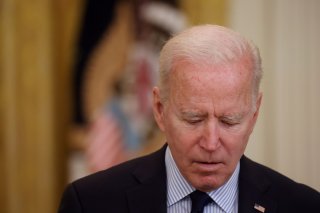Fourth Stimulus Payment: Three Reasons It Won't Happen
The pandemic has clearly impacted some sectors more than others, and President Biden has underlined his commitment to aiding these sectors. However, he has also signaled his intent to use more targeted measures than a universal cash payment.
By the middle of May, the third round of stimulus checks – altogether numbering more than 160 million payments – will mostly have arrived at their destinations. Despite the IRS’ backlog, and the difficulties posed by processing the stimulus checks in addition to this year’s tax returns, the tax agency has been unusually efficient; the payments
Support for a fourth stimulus check is generally high, with some data suggesting that most Americans would support such a measure. However, there are a few compelling reasons to doubt that a fourth will ultimately be sent out. Here are three of them.
Congressional Deadlock
For better or worse, President Biden cannot simply order the IRS to distribute stimulus checks via executive order. Instead, Congress, which has the power of the purse, must negotiate a stimulus bill.
Invariably, stimulus legislation is used as a vehicle for “riders,” or other legislation that would not merit separate bills on its own. This is why, for instance, the December 2020 stimulus bill that provided for the second round of $600 checks was 5,593 pages long and included a clause regarding America’s political position on the Dalai Lama’s reincarnation.
All of this means that the process for passing a fourth round of stimulus payments would be long and involve considerable negotiation from all sides. Moreover, Congressional Republicans have indicated that they oppose a fourth stimulus, and if they filibuster it, President Biden and Senate Majority Leader Chuck Schumer (D-NY) would need to find ten Republicans willing to cross party lines. In the current atmosphere on Capitol Hill, this is essentially a statistical impossibility.
Economic Recovery
The first stimulus check, passed through the CARES Act in March 2020, was passed in response to a clear need for funds; after the lockdowns, businesses closed, millions of employees were let go, and the need for immediate cash relief was clear.
More than a year into the pandemic, the economy seems on track to recover well. In the first quarter of 2021, the U.S. economy grew at 6.4 percent. In an ordinary year, this number would be astonishingly good, and it is possible that the second-quarter number will exceed it.
At the same time, the stock market has recovered, and more than 200 million vaccination shots have already been distributed, with fully one-third of the United States fully vaccinated. These numbers suggest that some semblance of normality will soon return.
Other Stimulus Measures
The pandemic has clearly impacted some sectors more than others, and President Biden has underlined his commitment to aiding these sectors. However, he has also signaled his intent to use more targeted measures than a universal cash payment.
Several of these measures were outlined in Biden’s hundred-day address to Congress at the end of April. The most significant, the American Families Plan, would dramatically expand payments to middle-income American families, notably through a significant increase in the Child Tax Credit. By increasing the tax credit to $3000 per child per year ($3600 for young children), Biden has essentially given these families a fourth stimulus check.
Trevor Filseth is a news reporter and writer for the National Interest.

